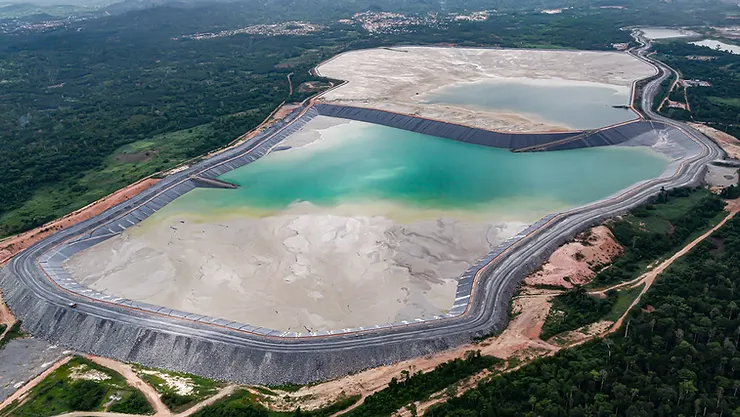
Tailings Dam Monitoring with InSAR & AI
Tailings Dam Monitoring: How Advanced Satellite Intelligence Is Transforming Tailings Dam Safety Tailings dams are among the most critical—and high-risk—structures
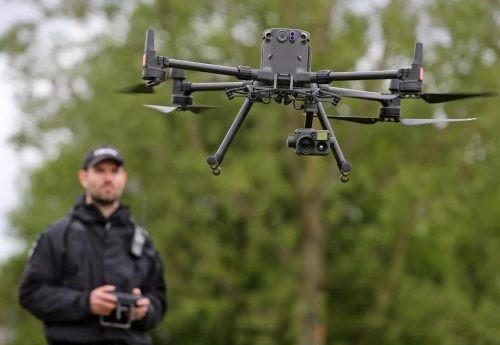
Over the last decade, the drone pilot career has grown tremendously, offering numerous opportunities in various industries. As the demand for drone technology expands, so do the job opportunities for drone pilots. This guide will help you understand the types of drone pilot jobs available, the industries employing drone technology, and examples of compensation and salaries in this exciting field. Before diving in, let’s ask: What brings you here? Are you someone interested in a drone career, or maybe you’re already a pilot looking for new jobs for flying drones? Perhaps you’re a drone enthusiast eager to explore the diverse possibilities of drone pilot careers? Or, maybe you want to know what the future holds for jobs for drone operators and UAV pilots?
This resource is designed to answer all your questions and provide insights into the best job opportunities for drone pilots. Whether you’re an experienced pilot or just starting out, there are a variety of jobs for drone pilots waiting for you. In this article, you’ll learn about industries that heavily rely on drone technology, the roles available for both pilots and non-pilots, and how to navigate the growing market of drone careers.
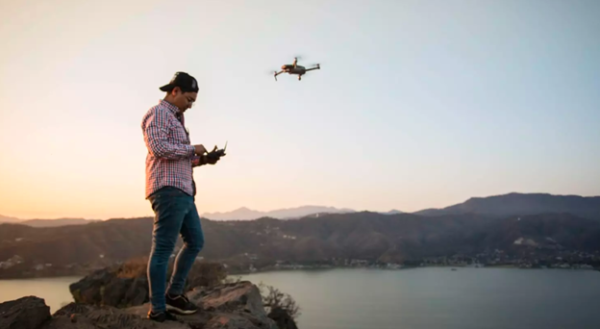
The global drone market is booming, with projections indicating it will reach $54.6 billion by 2030. This growth opens a wide array of job opportunities for drone pilots, from public safety and filmmaking to jobs for UAV pilots in surveying, real estate, and more. The versatility of drones makes them indispensable tools across various sectors, leading to exciting jobs for drone operators.
Drones, or Unmanned Aerial Vehicles (UAVs), are no longer just recreational gadgets. They have become vital assets in industries that require the ability to access challenging areas, capture high-quality data, or monitor large regions efficiently. Whether you’re interested in drone security, environmental monitoring, or even entertainment, there is no shortage of drone pilot careers to explore.
The demand for drone pilots has surged across industries. For example, jobs for drone pilots in real estate involve capturing stunning aerial footage of properties, while drone operators in construction help track the progress of building projects. The variety of jobs for UAV pilots means you can find a role that matches your passion, whether that’s in media production, agriculture, or even search and rescue. Each role offers its own challenges and rewards, and there is a lot of potential for growth in a drone career.
In this guide, you’ll also find detailed information about how to pursue a job as a drone pilot, how to build a career in the UAV industry, and the steps you can take to ensure your success in this ever-evolving field. With the right skills and training, you can land a rewarding drone pilot career that suits your interests and ambitions.
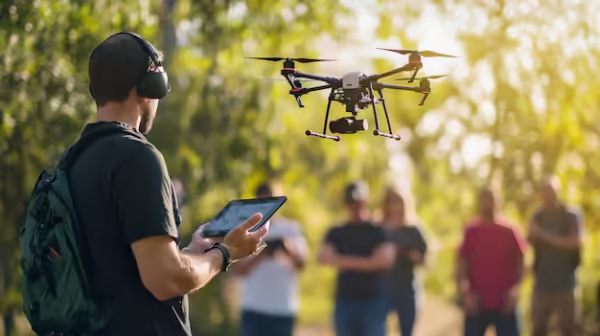
If you’re interested in starting a drone pilot career, it’s important to understand the steps involved. The first step is learning how to operate a drone safely and efficiently. Most people begin by taking basic drone flying lessons by joining a drone training program, where you learn how to control the drone, avoid obstacles, and understand the flight regulations. These skills form the foundation for a successful drone career.
After gaining the necessary skills, the next step is to obtain a drone pilot certification. In many countries, like the United States, you need a Part 107 certification from the FAA to legally operate drones for commercial purposes. This certification ensures that you know the rules and regulations around flying drones, including airspace limits and safety guidelines. Completing this step will open up more job opportunities for drone pilots in various industries.
Once certified, it’s time to gain practical experience. Flying regularly will improve your skills and help you master the different types of drones used in industries like real estate, construction, and filmmaking. After some time, you’ll be ready to explore jobs for UAV pilots that fit your interests. Remember, a job as a drone pilot can lead to many exciting opportunities in industries such as agriculture, security, and public safety.
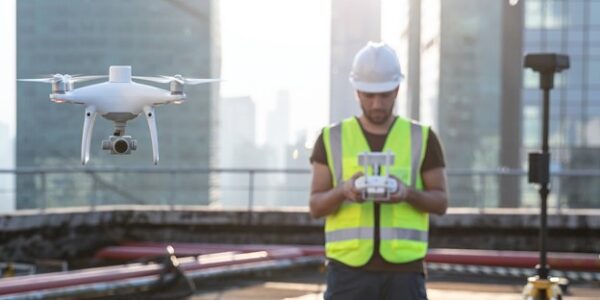
A drone pilot career involves more than just flying drones. Drone pilots are responsible for many different tasks, depending on the industry. For example, in the construction industry, a drone pilot might use UAVs to survey land or inspect building progress. In real estate, drone operators often capture aerial footage of properties to showcase them for buyers. On the other hand, jobs for drone operators in agriculture may involve using drones to monitor crop health, identify pest issues, or plan irrigation systems.
In addition to flying, UAV pilots are also responsible for maintaining their equipment. This means inspecting drones before and after each flight, making sure the batteries are fully charged, and keeping the cameras in good working condition. Jobs for flying drones also require pilots to collect and analyze data from the drone, whether it’s video footage, thermal images, or survey results. Understanding how to interpret this data is an important part of many drone pilot careers.
The future of drone pilot careers is bright and full of possibilities. As technology improves, job opportunities for drone pilots are expected to grow across different sectors. Industries like agriculture, construction, and public safety are increasingly relying on drones for their operations. This means there will be more jobs for drone pilots in the coming years.
Another area where drone careers are expanding is drone delivery services. Companies are already testing drones to deliver packages, and this could create new jobs for UAV pilots. Jobs for drone operators in fields like environmental conservation and wildlife monitoring are also on the rise, as drones help track animals and study natural habitats without disturbing them.
As drones continue to be used in more industries, the demand for skilled drone pilots will increase. So if you’re looking to start a drone pilot career, now is a great time to learn and get certified.
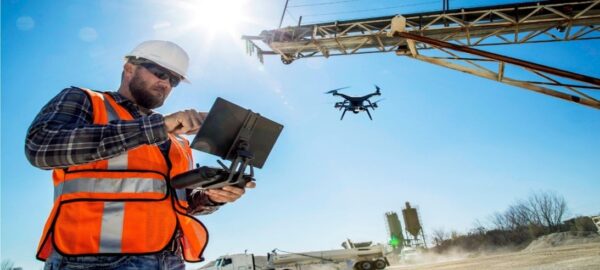
To build a successful drone pilot career, there are several skills and knowledge areas you need to master. It’s not just about flying drones; you must be well-versed in various tools, software, and technical skills to handle drones effectively. Understanding how to operate drones and interpret the data they collect is essential for making you eligible for the best job opportunities for drone pilots. Let’s go through the key skills needed to land jobs for drone pilots in any industry.
To pursue a drone pilot career, mastering flying techniques is the most fundamental skill. You need to be comfortable controlling drones, understanding their flight dynamics, and using controllers or mobile apps for smooth operations. You should also know how to manage jobs for flying drones in different conditions like windy or restricted environments. Precision in flying is critical to ensure drones capture accurate data and avoid obstacles.
A key part of jobs for UAV pilots is knowing the rules and regulations of airspace. You must understand local laws governing drone flights, especially in populated or restricted zones. Many drone career roles require you to operate within legal frameworks set by aviation authorities, ensuring public safety and compliance.
Modern jobs for drone operators require knowledge of various tools and software. Drone pilots must be familiar with flight planning software like DJI GO, Litchi, or Pix4D, which helps create accurate flight paths and missions. Moreover, you should know post-processing software to analyze the data collected, whether it’s images, videos, or 3D models. Mastery of these tools is necessary to meet the demands of drone pilot careers.
Many jobs for drone pilots require you to capture high-quality footage, especially for industries like real estate, filmmaking, or inspections. This means understanding how to operate cameras attached to drones, including adjusting settings for resolution, lighting, and angles. Knowing the basics of photography and videography is a must for these job opportunities for drone pilots. Editing the footage later for professional use is also a highly valued skill.
In many drone pilot careers, it’s not enough to collect data; you also need to know how to interpret it. This is especially important in industries like agriculture, construction, or energy, where drones are used to survey land, inspect infrastructure, or monitor crops. You should be comfortable using software that helps process aerial data into actionable insights.
A solid understanding of navigation tools and GPS technology is crucial in any job as drone pilot. Drone pilots rely heavily on GPS to plan and execute their flights. Knowing how to set waypoints, plan routes, and adjust positioning based on real-time data is key to success in jobs for drone pilot positions.
For many drone career roles, you will be working closely with a team, such as data analysts, project managers, or other operators. Strong communication and teamwork skills are necessary to ensure that the drone operations are in sync with overall project goals. Whether you’re working on jobs for UAV pilots in construction, surveillance, or emergency response, being able to coordinate effectively is essential.
Every drone pilot career comes with unexpected challenges, such as changing weather conditions or technical failures. The ability to troubleshoot and solve problems quickly will help you stand out in your role. Employers seeking job opportunities for drone pilots value candidates who can make critical decisions on the fly to ensure successful mission completion.
Another crucial skill for drone pilot careers is understanding how to maintain and repair drones. Regular checks and maintenance are necessary to keep drones in working condition. Knowing how to handle small repairs or replace damaged parts can save time and ensure drones remain operational for jobs for drone operators.
For any drone pilot career, attention to detail is crucial, especially when working on tasks like aerial mapping or inspections. The ability to capture fine details during flights can greatly impact the quality of the final deliverables. Whether you’re involved in jobs for UAV pilots for surveying or drone security, being detail-oriented ensures that the data collected is accurate and useful.
Mastering these essential skills will set you on the right path to success in a drone pilot career, whether you’re looking for jobs for flying drones, jobs for UAV pilots, or exploring job opportunities for drone pilots in any industry.
The world of drones is expanding rapidly, leading to various drone pilot careers across multiple industries. As technology advances, the need for skilled drone operators grows, presenting numerous job opportunities for drone pilots. Whether you are interested in photography, agriculture, public safety, or real estate, there are many exciting paths you can explore in this field.

In real estate, a drone pilot career is becoming very popular. Drones help real estate agents show properties in exciting ways. They can take pictures and videos from the sky, allowing buyers to see everything about a property. Drones can also create 3D maps and orthomosaics, which are special maps made from many images. These maps look real and help buyers understand the property better.
Many job opportunities for drone pilots in real estate are freelance jobs. This means that you might work for yourself and charge a fee for your work. Your job as a drone pilot will be to fly the drone over a property, capture amazing aerial footage, and provide it to real estate agents for their marketing materials. You might also create virtual tours, which are videos that let people walk through a property online. This requires both flying skills and video-editing skills.
Once you capture the photos and videos, you will edit them to make them look great. This editing work is important because you need to provide high-quality images and videos to your clients. Knowing how to use video editing software is a key skill for a job as a drone pilot in real estate.
When it comes to earnings, drone pilots in real estate can make a good amount of money. Most pilots charge between $25 and $200 per hour for their services. Many pilots also offer package deals, where clients pay a fixed price for a set number of photos or videos. It’s important to consider all your costs, like the drone, insurance, and any training you’ve had, to figure out how much you need to earn.
For example, a drone pilot might charge $160 for taking photos of an estate. They could take about 10 pictures and make several short video clips. If a pilot works on 4 to 5 estates in a day, they can earn a lot of money. If a job requires travel, pilots will include travel costs in their fees.
A drone career in real estate is very versatile. As a drone pilot, you can work on various projects, such as:
This variety helps you gain experience and improves your skills, making you more successful in your drone pilot career.
To succeed in jobs for drone pilots in real estate, you will need certain skills, including:
|
Drone Model |
Camera Specs |
Flight Time |
Features |
|
DJI Mavic 3 |
20 MP Hasselblad, 5.1K video |
46 minutes |
Omnidirectional obstacle sensing |
|
DJI Mini 4 Pro |
48 MP, 4K at 60fps |
34 minutes |
Compact design, 2x digital zoom |
|
Autel EVO Lite+ |
50 MP, 4K HDR video |
40 minutes |
Excellent low-light performance |
|
Autel EVO II |
48 MP, 8K video |
40 minutes |
High-resolution imaging |

Drone pilot careers in construction and mining are becoming very important. Drones help these industries by providing aerial views of construction sites and mining operations. With a drone, a pilot can survey large areas, inspect the progress of work, and create 3D models to assist in planning. The earning potential for these jobs can reach around $78,110 per year!
Using drones in construction and mining helps save a lot of money. They can capture detailed information about stockpiles, track how much work has been done, and check for safety issues. For example, a drone can collect data about the exact locations of materials or see if work is falling behind. This information helps companies make better decisions without sending workers into potentially dangerous areas.
With drones, a construction or mining company can cover a huge area quickly. This means a drone can gather the same data in 10 minutes that it would take a person hours to collect on foot. This not only saves time but also keeps workers safe. More companies are hiring drone pilots for full-time jobs, but there are also many job opportunities for drone pilots as freelancers.
If you want a drone pilot career in construction or mining, you need to know how to operate drones and how to create the necessary reports or maps from the data you collect. This could be an orthomosaic map or simple photos and videos to show progress on a project. Understanding how to use software to process this data is also very important.
|
Drone Model |
Camera Specs |
Flight Time |
Features |
|
DJI Matrice 300 RTK |
Compatible with Zenmuse |
55 minutes |
AI capabilities, omnidirectional sensing |
|
Autel EVO II |
48 MP, 8K video |
40 minutes |
High-resolution imaging |
|
DJI Phantom 4 RTK |
20 MP, RTK capability |
30 minutes |
High precision for mapping |
|
Autel Dragonfish Lite |
12 MP, 4K video |
90 minutes |
VTOL capabilities, long-range flight |
To succeed in this drone pilot career, you need specific skills:
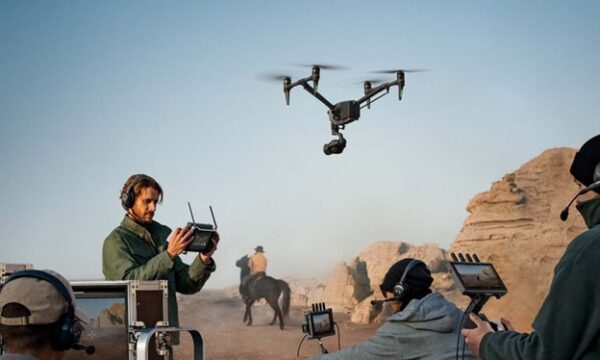
A drone pilot career in filmmaking is an exciting opportunity that allows you to capture amazing aerial footage for movies, commercials, and TV shows. Drones provide a unique way to get stunning shots that traditional cameras can’t easily achieve. Instead of using expensive helicopters, filmmakers can use drones to get beautiful aerial views at a much lower cost. This has opened up many job opportunities for drone pilots in the film industry.
As a drone pilot in filmmaking, your main job is to fly drones equipped with high-quality cameras. These drones can quickly get shots from the sky, which makes them perfect for action scenes or location shots. For example, you might be asked to film a chase scene or get an aerial view of a stunning landscape. Most of the time, these jobs are for specific projects. You won’t always be part of the crew for the whole filming process; instead, you’ll be hired for certain days to capture the required footage.
To succeed in this drone career, it’s helpful to live near film hubs like Los Angeles or Atlanta, where more jobs for drone pilots are available. Building connections in the industry is also important. You can start by offering your services for free or at a lower cost to get your name out there. As you meet people and show your work, you can find more job opportunities.
Drones are also becoming popular for filming high-energy scenes, like car chases, using First-Person View (FPV) technology. If you enjoy flying FPV drones, you might find a niche in action films where you can demonstrate your skills.
In the film industry, a job as a drone pilot can be financially rewarding. Many drone pilots can charge between $300 to $400 an hour, depending on the complexity of the job and the demand for their services. Some clients prefer to pay a flat rate for a complete package, which can range from $1,000 to $1,500 per day.
However, it’s important to know your worth. If you are just starting, you might want to set lower prices to attract clients, but don’t undervalue your skills. If you are consistently in demand, consider raising your prices to reflect your experience and the quality of your work.
Here are some common types of missions you may work on as a drone pilot in filmmaking:
To succeed as a drone pilot in the film industry, consider developing these skills:
Here’s a table of some of the best drones for filmmakers and the software you might use:
|
Drone |
Type |
Recommended Software |
|
DJI Mavic 3 |
Quadcopter |
Adobe Premiere Pro |
|
DJI Air 2S |
Quadcopter |
Final Cut Pro |
|
Autel EVO Lite+ |
Quadcopter |
DaVinci Resolve |
|
Autel EVO II Pro |
Quadcopter |
Filmora |

In the world of drone pilot careers, there are exciting opportunities in public safety and emergency services. Drones play a vital role in helping communities during emergencies. They can be used for search and rescue operations, disaster relief, and even wildlife conservation. This area offers many job opportunities for drone pilots looking to make a real difference.
One popular role is that of a search and rescue drone pilot. These pilots use drones to find missing people in hard-to-reach places. Drones equipped with thermal cameras can see in the dark or through fog, making it easier to locate someone who needs help. This job can be rewarding because you are directly contributing to saving lives. Earning Potential: $49,000/year.
Drones are also used for disaster response. After a hurricane or flood, drones can deliver supplies to people in need. They help assess damage so that first responders can quickly understand the situation and make better decisions. This use of drones improves the speed and efficiency of emergency services, making them crucial in times of crisis. Earning Potential: $49,000/year.
Another important area is wildlife conservation. Drones help monitor endangered animals and track illegal poaching activities. This work protects delicate ecosystems and ensures that wildlife thrives. Earning Potential: $50,000/year.
To be successful in these jobs for drone pilots, you need certain skills:
Here are some common missions you might fly as a drone pilot in public safety:
When it comes to selecting the right equipment for public safety, both DJI and Autel offer excellent drones. Here’s a table of some top choices:
|
Drone Model |
Camera |
Flight Time |
Best For |
Earning Potential |
Software |
|
DJI Matrice 300 RTK |
Various Payloads |
55 minutes |
Search and Rescue |
$50,000/year |
DroneDeploy |
|
DJI Mavic 3 |
20 MP, 5.1K Video |
46 minutes |
Aerial Photography |
$49,000/year |
Pix4D |
|
Autel EVO II Dual 640T |
640×512 Thermal, 8K Video |
40 minutes |
Industrial Inspections |
$50,000/year |
Agisoft |
|
Autel Dragonfish Pro |
12 MP, 4K Video |
180 minutes |
Long-Range Aerial Missions |
$50,000/year |
DroneDeploy |
Choosing the right equipment and software can help you succeed in your drone career in public safety. As the field grows, the demand for skilled drone operators will continue to rise, making this a great time to explore a job as a drone pilot. With the right training and passion for flying drones, you can make a meaningful impact in your community.
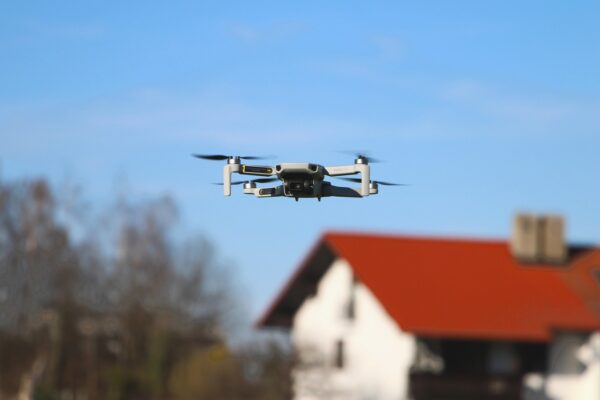
In the modern age, drones for security and surveillance are changing how insurance companies assess claims. Drones allow insurance providers to create 3D maps of properties, which helps them determine risks and set appropriate premiums for customers.
When severe weather strikes, many homeowners file claims for roof damage. Traditionally, insurance companies would send an inspector to physically check each property. Inspectors had to climb ladders and take pictures, which was time-consuming and sometimes unsafe.
However, with drone pilot careers, this process is now faster and safer. A skilled drone pilot can quickly capture detailed images of a roof in just 20-30 minutes. The drone flies a planned route, gathering all the necessary footage to help evaluate insurance claims. This modern method is quicker and more cost-effective than traditional inspections.
Drones play an important role in various tasks, such as:
The earnings for jobs in the insurance sector as a drone pilot can vary. Typically, a drone pilot working in insurance can earn around $94,051 per year. However, income may vary based on experience, location, and the nature of the work.
While the job offers many advantages, there are also challenges:
To succeed as a drone pilot in insurance, you’ll need to possess these skills:
|
Drone Model |
Camera Quality |
Flight Time |
Software |
Ideal For |
|
DJI Mavic 3 |
20 MP Hasselblad, 5.1K Video |
46 minutes |
DJI Fly App |
Aerial Photography & Inspections |
|
Autel EVO II Pro V3 |
20 MP, 6K Video |
40 minutes |
Autel Sky App |
High-Resolution Inspections |
|
DJI Matrice 300 RTK |
Compatible with various payloads |
55 minutes |
DJI Pilot |
Complex Inspections |
|
Autel EVO Lite+ |
50 MP, 4K HDR Video |
40 minutes |
Autel Sky App |
Casual Inspections & Surveys |
|
DJI Air 3 |
Dual 48 MP Cameras |
46 minutes |
DJI Fly App |
Versatile Aerial Work |
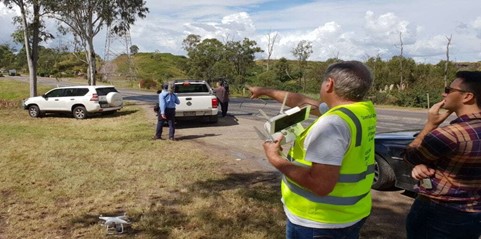
Aerial News Drone Pilot: As a drone pilot career in journalism, you’ll fly drones to capture stunning aerial footage for live news broadcasts and cover breaking news events from unique perspectives. This field offers many job opportunities for drone pilots, especially as demand for innovative storytelling increases.
Drones are revolutionizing how news is captured and presented. For example, during natural disasters, drones can fly above dangerous areas, providing essential visuals to help viewers understand the situation. Journalists can capture footage of floods, wildfires, or storms, offering a clearer view that traditional cameras cannot match. Using drones for news coverage allows reporters to provide insights with unique perspectives.
Drones excel in reaching hard-to-access areas, soaring high to show the scope of an event or zooming in on key details. This capability adds depth to news stories and helps paint a more vivid picture for the audience. Drones can also capture footage that allows viewers to better understand events. For instance, in wildfire coverage, drones show the fire’s spread and impact on the land, providing vital information to the audience.
In addition to their unique abilities, drones are a cost-effective option for journalism. Hiring helicopters for aerial footage is expensive, but drones offer similar high-quality visuals at a fraction of the cost, allowing news organizations to include more aerial shots in their coverage.
The average salary for a drone pilot in journalism is around $35,000 per year. However, it can increase with experience and specialization in high-demand areas like breaking news or documentary work.
| Drone Model | Camera Type | Flight Time | Software | Ideal Use |
|---|---|---|---|---|
| DJI Mavic 3 | 20 MP Hasselblad | 46 minutes | DJI Fly App | Aerial photography |
| DJI Mini 3 Pro | 48 MP CMOS | 34 minutes | DJI Fly App | Travel and social media |
| Autel EVO II | 48 MP, 8K Video | 40 minutes | Autel Explorer | Filmmaking |
| DJI Air 3 | Dual 48 MP | 46 minutes | DJI Fly App | Creative projects |
| Autel EVO Lite+ | 50 MP, 4K HDR | 40 minutes | Autel Explorer | Low-light environments |
| DJI Avata | 48 MP CMOS | 18 minutes | DJI Fly App | FPV flying |
With the right skills and equipment, a drone pilot career in journalism offers exciting opportunities to capture stunning visuals and tell stories in innovative ways. Whether reporting on breaking news or filming for a documentary, drones have become an essential tool in modern journalism.
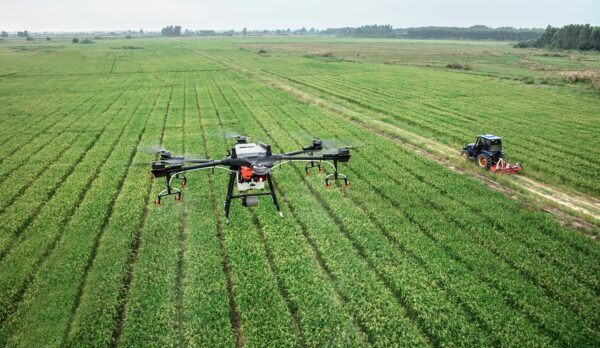
In modern farming, drones have transformed how agricultural tasks are performed. As a drone pilot career in agriculture, you will help farmers increase crop yields, monitor fields, and assess soil conditions. There are many job opportunities for drone pilots in this field, with drones being used to cover large areas of farmland in a fraction of the time traditional methods would take.
Drones equipped with advanced sensors and cameras can assess crop health, water distribution, and soil conditions, providing farmers with crucial data. For example, drones with multispectral sensors can identify areas of the field that need more water or nutrients, improving overall farm management.
Improved Efficiency: Drones can cover large agricultural areas in much less time than manual inspections or traditional farming methods. This speeds up crop assessments and allows for timely interventions.
Precision Agriculture: Drones provide highly accurate data, helping farmers make better decisions about planting, irrigation, and fertilization. This leads to higher yields and reduced costs.
Cost Savings: Using drones eliminates the need for expensive manned aircraft or labor-intensive inspections. It reduces the need for manual labor while providing superior data collection capabilities.
Environmental Monitoring: Drones can help monitor the environmental impact of farming activities, such as pesticide use or water management, contributing to more sustainable farming practices.
Detection of Diseases:Early detection of diseases and pests allows timely action.
Technical Knowledge: Operating drones with advanced sensors and software requires specialized skills, including knowledge of multispectral imaging and GPS mapping technologies.
Regulatory Issues: Agricultural drones must comply with airspace regulations and might require special permissions depending on the country or region where they are being used.
Battery Limitations: Drones used for agriculture need to cover vast areas, but their flight time can be limited. This could require multiple flights to cover large farms.
Weather Sensitivity: Weather conditions such as high winds or rain can affect the performance of drones, delaying critical farming assessments.
High Investment: Initial investment in drone technology and training may be high for smaller farmers.
Crop Monitoring: Pilots use drones equipped with multispectral and thermal cameras to monitor crop health, identify stress zones, and provide insights into irrigation needs.
Soil Analysis: Drones gather data on soil moisture levels, helping farmers optimize irrigation systems and better manage water resources.
Planting and Seeding: Some drones can be used for planting seeds in a highly efficient and precise manner, particularly in hard-to-reach areas.
Livestock Monitoring: Drones can also be used for monitoring livestock, providing farmers with a quick way to check the condition and location of animals in large pastures.
Field Mapping: Drones generate detailed maps of agricultural fields, helping farmers analyze their land for optimal crop placement and resource management.
In the agricultural sector, the average salary for a drone pilot career can range from $70,000 to $100,000 annually, depending on experience, location, and the size of the farms you work for. As the demand for drone pilots continues to grow, especially in precision agriculture, the earning potential may increase significantly.
| Drone Model | Camera Type | Flight Time | Software | Best Use |
|---|---|---|---|---|
| DJI Agras T30 | 30L spray tank | 20 minutes | DJI Agras | Spraying pesticides |
| DJI Phantom 4 RTK | 20 MP CMOS | 30 minutes | DJI Terra | Field mapping |
| DJI Matrice 300 RTK | Interchangeable | 55 minutes | DJI Pilot | Livestock monitoring |
| DJI Mavic 3 Multispectral | RGB + Multispectral | 43 minutes | DJI Terra | Crop health analysis |
| Autel EVO II Dual 640T | Thermal + RGB | 38 minutes | Autel Explorer | Precision agriculture |
| Autel EVO Lite+ | 50 MP CMOS | 40 minutes | Autel Sky App | Low-light crop monitoring |
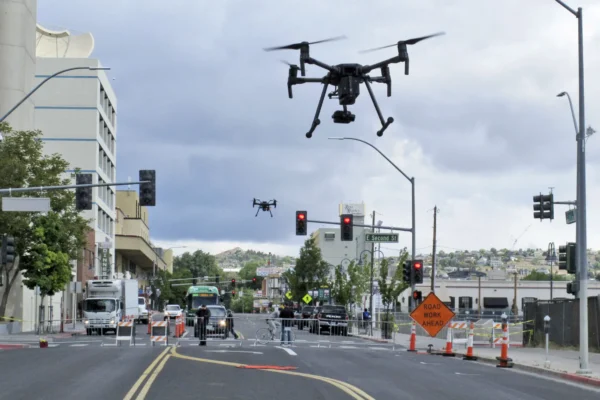
A drone pilot career in transportation can be very exciting and rewarding. One important job is a Traffic Monitoring Drone Pilot. This job involves using drones to watch over the roads and highways. With these drones, pilots can quickly see how traffic is moving, report accidents, and help manage the flow of cars and trucks.
The earning potential for this position can reach about $78,110 per year. It’s a great way to use technology to make roads safer and more efficient. Here are some key points about this role:
In the transportation industry, jobs for drone pilots can take many forms. Here are a few examples of what these UAV operators do:
Drones are changing the way we think about transportation. They save time and money by speeding up the inspection process. For example, a task that used to take 16 hours and cost $4,600 can now be done in just 2 hours for about $250!
The earnings for drone pilots working in transportation can vary based on their location, the level of specialization, and the type of drones used. On average, a Traffic Monitoring Drone Pilot can earn between $65,000 and $85,000 annually, with more experienced UAV operators commanding higher salaries. Additionally, freelance drone pilots may earn more per project, particularly if they are hired by municipal transportation agencies or private contractors. For pilots working in emergency traffic management, the potential for high-demand situations like accident investigation can lead to a higher payout.
To succeed as a drone pilot in transportation, you need to have a few important skills:
| Drone Model | Camera Type | Flight Time | Software | Best For |
|---|---|---|---|---|
| DJI Mavic 3 | 20 MP Hasselblad | 46 minutes | DJI Fly App | Aerial Traffic Monitoring |
| Autel EVO II RTK V3 | 8K Video | 40 minutes | Autel Explorer | Aerial Mapping |
| DJI Matrice 300 RTK | 4K Camera | 55 minutes | DJI Pilot | Infrastructure Inspection |
| Autel EVO Lite+ | 50 MP, 4K HDR Video | 40 minutes | Autel Sky App | Urban Traffic Analysis |
| Autel Dragonfish Lite | 12 MP, 4K Video | 80 minutes | Autel Smart Controller | Emergency Response |
| Autel EVO II Pro V3 | 20 MP, 6K Video | 40 minutes | Autel Explorer App | Accident Investigation |
| DJI Air 3 | Dual 48 MP Cameras | 46 minutes | DJI Fly App | Versatile Transportation Use |

In the energy and utilities sector, drone pilot careers have emerged as vital roles, enabling companies to conduct inspections, monitor assets, and enhance operational efficiency. Drones equipped with advanced imaging technology offer unique perspectives for assessing power lines, wind turbines, and solar panels, facilitating proactive maintenance and reducing downtime.
Applications of Drones in Energy and Utilities Drones play an essential role in various tasks, including:
·Pipeline Inspections: Using drones, pilots can find leaks or cracks in pipelines quickly.
·Infrastructure Checks: Drones can also inspect stations, support beams, and other infrastructure related to energy production.
The earning potential for drone pilots in the energy sector varies based on experience and location. Typically, drone pilots in energy and utilities can earn an average salary of around $80,000 per year, with experienced professionals potentially earning more, especially in roles requiring specialized skills.
While the job offers numerous benefits, there are challenges to consider:
To succeed in a drone pilot career within this sector, you’ll need to possess the following unique skills:
| Drone Model | Camera Type | Flight Time | Software | Best For |
|---|---|---|---|---|
| DJI Matrice 300 RTK | 4K Camera | 55 minutes | DJI Pilot | Power Line Inspections |
| Autel EVO II RTK V3 | 8K Video | 40 minutes | Autel Explorer | Aerial Mapping |
| DJI Mavic 3 | 20 MP Hasselblad | 46 minutes | DJI Fly App | Wind Turbine Assessments |
| Autel EVO Lite+ | 50 MP, 4K HDR Video | 40 minutes | Autel Sky App | Solar Panel Monitoring |
| DJI Matrice 30 | 4K HDR Video | 41 minutes | DJI Pilot | Emergency Response & Inspections |
| Autel Dragonfish Lite | 12 MP, 4K Video | 60 minutes | Autel Smart Controller | Environmental Monitoring |
| Autel EVO Lite Enterprise | 6K HDR Video | 40 minutes | Autel Explorer App | Infrastructure Inspections |
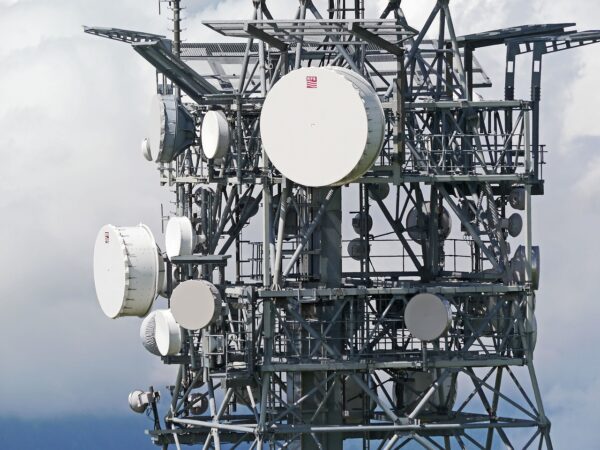
Drone pilot careers in telecommunications are transforming how the industry conducts inspections, surveys, and maintenance. Drones are invaluable for monitoring cell towers and other infrastructure, enabling faster and more accurate assessments compared to traditional methods. As the demand for high-speed internet and cellular services continues to grow, so do the opportunities for UAV operators in this field.
Using drones for telecommunications offers several advantages. For instance, drone pilots can conduct detailed inspections of cell towers without the need for scaffolding or ladders, significantly improving safety and efficiency. Drones can capture high-resolution images and videos, providing telecommunications companies with critical data to evaluate equipment condition and performance.
Drones play a vital role in various tasks, including:
The earnings for drone pilot jobs in telecommunications can vary significantly. Typically, a drone pilot in this sector can earn an average of $75,000 to $90,000 per year, depending on experience, location, and specific job responsibilities. Some specialized roles, such as those requiring advanced technical skills or management responsibilities, can command higher salaries.
While there are many advantages, there are also challenges:
To excel as a drone pilot in telecommunications, the following skills are essential:
| Drone Model | Camera Type | Flight Time | Software | Best For |
|---|---|---|---|---|
| DJI Matrice 300 RTK | 4K Camera | 55 minutes | DJI Pilot | Tower Inspections |
| Autel EVO II RTK V3 | 8K Video | 40 minutes | Autel Explorer | Aerial Mapping |
| DJI Mavic 3 | 20 MP Hasselblad | 46 minutes | DJI Fly App | Network Coverage Analysis |
| Autel EVO Lite+ | 50 MP, 4K HDR Video | 40 minutes | Autel Sky App | Infrastructure Surveys |
| DJI Air 3 | Dual 48 MP Cameras | 46 minutes | DJI Fly App | Versatile Telecommunications Use |
| Autel EVO Lite Enterprise | 6K HDR Video | 40 minutes | Autel Explorer App | Advanced Tower Inspections |

Drone pilot careers in education are emerging as innovative tools for teaching, research, and field studies. Educational institutions, from primary schools to universities, are increasingly incorporating drones into their curricula to enhance learning experiences, facilitate research, and promote STEM (Science, Technology, Engineering, and Mathematics) education.
Drones provide unique opportunities for students to engage in hands-on learning, particularly in subjects such as geography, environmental science, and engineering. By using drones for aerial photography, mapping, and data collection, educators can offer practical applications of theoretical knowledge, stimulating students’ interest in technology and science.
Drones are used in various educational contexts, including:
The earnings for drone pilot jobs in education can vary widely. Educators with expertise in drone technology may earn an average of $60,000 to $80,000 per year depending on their role, location, and the institution’s budget. Specialized educators, such as those teaching advanced drone piloting or aerial photography, may command higher salaries.
Despite the benefits, several challenges exist:
To succeed in drone pilot roles within education, the following skills are essential:
| Drone Model | Camera Type | Flight Time | Software | Best For |
|---|---|---|---|---|
| DJI Mavic Mini | 12 MP Camera | 30 minutes | DJI Fly App | Aerial Photography |
| Autel EVO Lite+ | 50 MP, 4K HDR Video | 40 minutes | Autel Sky App | Mapping and Surveying |
| DJI Phantom 4 RTK | 20 MP Camera | 30 minutes | DJI Pilot | Precision Agriculture |
| Autel EVO II RTK V3 | 8K Video | 40 minutes | Autel Explorer | Environmental Monitoring |
| DJI Air 3 | Dual 48 MP Cameras | 46 minutes | DJI Fly App | Versatile Educational Use |
| Autel EVO Lite Enterprise | 6K HDR Video | 40 minutes | Autel Explorer App | Advanced Research Projects |
Working with drones in education can lead to exciting careers. Whether you teach students to fly drones or develop programs that incorporate UAV technology, you play a vital role in preparing the next generation for the future. This is more than just a job as a drone pilot; it’s about inspiring young minds to explore the world of technology.
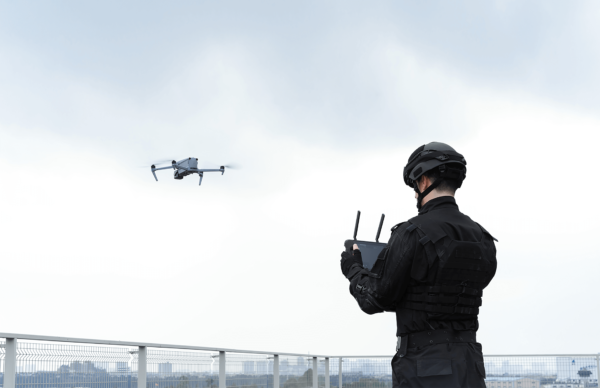
Drone pilot careers in defense and military applications are at the forefront of technological advancements in warfare, surveillance, and reconnaissance. The use of unmanned aerial vehicles (UAVs) has revolutionized the way military operations are conducted, offering enhanced capabilities for intelligence gathering, combat support, and logistical operations.
Drones play a crucial role in modern defense strategies, providing real-time situational awareness and minimizing risks to personnel. They are utilized for various missions, including surveillance, reconnaissance, target acquisition, and combat support, allowing military forces to operate more effectively in diverse environments.
Drones are used in a variety of defense applications, including:
The earnings for drone pilot jobs in the defense and military sector vary based on experience and role. Military drone pilots can earn an average salary ranging from $70,000 to $120,000 per year, depending on their position, rank, and responsibilities. Contractors working in this field may also command competitive salaries, often influenced by their level of expertise and the specific technologies they operate.
Despite the advantages, there are challenges in this field:
To succeed in drone pilot roles within defense and military, the following skills are essential:
| Drone Model | Camera Type | Flight Time | Software | Best For |
|---|---|---|---|---|
| DJI Matrice 300 RTK | Custom Payload Options | 55 minutes | DJI Pilot | Intelligence and Reconnaissance |
| DJI Matrice 30 | 4K Camera | 41 minutes | DJI Pilot | Emergency Response |
| Autel EVO Lite Enterprise | 6K HDR Video | 40 minutes | Autel Explorer App | Tactical Operations |
| Autel EVO II Dual | 8K Video + Thermal Imaging | 40 minutes | Autel Explorer | Search and Rescue |
| DJI Mavic 3 Enterprise | 20 MP Hasselblad | 46 minutes | DJI Pilot | Versatile Defense Use |
| Autel EVO II Pro V3 | 20 MP, 6K Video | 40 minutes | Autel Explorer | Infrastructure Inspection |
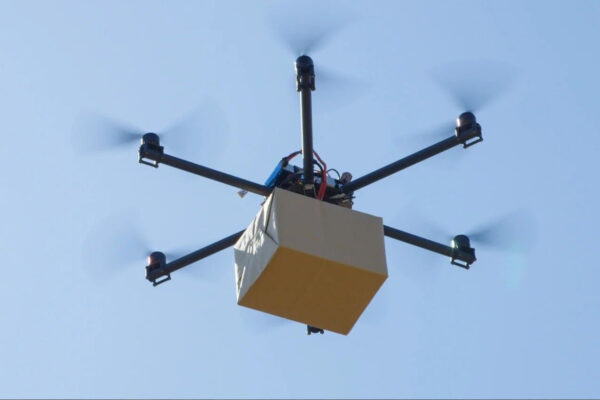
A drone delivery operator is a professional who flies drones to deliver packages, including logistics items and medical supplies. This role is becoming increasingly important as companies look for faster and more efficient ways to get products to customers. With the rise of e-commerce and the demand for quick deliveries, job opportunities for drone pilots in this sector are on the rise.
The earning potential for a drone delivery operator can reach around $75,000 per year. This amount can vary depending on the company, experience, and the region where you work. As the demand for delivery services grows, so do the financial rewards for skilled operators.
The delivery services sector employs drones in various ways, including:
To excel in drone delivery roles, operators should possess:
| Drone Model | Camera Type | Flight Time | Software | Best For |
|---|---|---|---|---|
| DJI Cart 30 | 4K Camera | 30 minutes | DJI Fly App | Package Delivery |
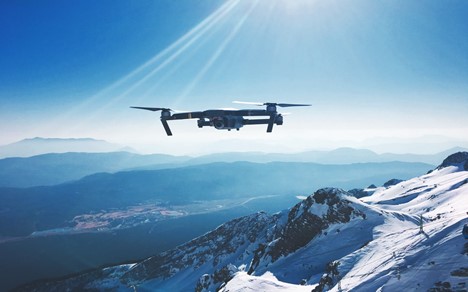
Drone pilot careers in environmental conservation are vital for protecting our planet and its wildlife. A Wildlife Monitoring UAV Pilot is a specific role that uses drones to track wildlife populations and observe their habitats. This position is becoming increasingly important as more organizations realize the benefits of using drones in conservation efforts.
Earning Potential for a wildlife monitoring UAV pilot is around $45,000 per year. The role involves flying drones to collect data on various species and their environments. Drones can cover large areas quickly, allowing pilots to monitor changes in wildlife populations and assess the health of ecosystems. This capability is particularly useful in areas that are difficult to access on foot, such as dense forests or remote habitats.
Technical Challenges: Pilots must possess technical knowledge to troubleshoot equipment issues and ensure drones operate effectively in the field.
Funding and Resources: Securing adequate funding for drone operations and maintenance can be a significant barrier in conservation projects.
To succeed in this field, drone pilots need:
|
Drone Model |
Key Features |
Recommended Software |
|
DJI Matrice 300 RTK |
Versatile payload options, thermal imaging capabilities |
DJI Pilot |
|
Autel EVO II Dual 640T |
Dual-camera system with thermal imaging |
Autel Explorer |

Drone pilot careers in infrastructure inspection are gaining momentum as industries increasingly adopt unmanned aerial vehicles (UAVs) for assessing and maintaining infrastructure such as bridges, power lines, and buildings. Drones offer an efficient and safe way to gather data and monitor conditions, allowing for timely maintenance and repairs.
The use of drones in infrastructure inspection enhances safety by reducing the need for workers to climb or enter hazardous areas. Drones can quickly cover large areas and provide high-resolution imagery and data, making them ideal for assessing the condition of various structures.
Drones are utilized for various inspection tasks, including:
The earnings for drone pilot jobs in infrastructure inspection can vary based on experience, location, and the complexity of projects. On average, drone pilots in this sector can expect to earn between $60,000 to $100,000 per year, depending on their role and responsibilities. Experienced professionals with specialized skills may command higher salaries.
While there are numerous advantages, some challenges exist:
To excel in drone pilot roles within infrastructure inspection, the following skills are essential:
| Drone Model | Camera Type | Flight Time | Software | Best For |
|---|---|---|---|---|
| DJI Matrice 300 RTK | Custom Payload Options | 55 minutes | DJI Pilot | Infrastructure Inspection |
| Autel EVO II RTK V3 | 8K Video | 40 minutes | Autel Explorer | Aerial Mapping and Inspection |
| DJI Mavic 3 | 20 MP Hasselblad | 46 minutes | DJI Fly App | Detailed Infrastructure Assessment |
| Autel EVO Lite+ | 50 MP, 4K HDR Video | 40 minutes | Autel Sky App | Comprehensive Infrastructure Review |
| DJI Phantom 4 RTK | 20 MP Camera | 30 minutes | DJI Pilot | Roof and Building Inspections |

Drone pilot careers in event coverage have transformed the way events are documented and experienced. Drones are increasingly utilized for live streaming, aerial photography, and videography, providing unique perspectives that enhance storytelling and engagement for various events, including weddings, concerts, festivals, and corporate gatherings.
Drones are used in diverse ways within the event coverage sector:
The earnings for drone pilot jobs in event coverage can vary significantly based on location, experience, and the scale of events. On average, drone pilots in this field can earn between $1,000 and $5,000 per event, depending on the services offered and the complexity of the shoot. Seasonal demand, particularly during wedding and festival seasons, can also affect overall earnings.
While the use of drones offers numerous benefits, there are challenges to consider:
To excel in drone pilot roles for event coverage, specific skills are essential:
| Drone Model | Camera Type | Flight Time | Software | Best For |
|---|---|---|---|---|
| DJI Mavic 3 | 20 MP Hasselblad | 46 minutes | DJI Fly App | Aerial Photography |
| Autel EVO Lite+ | 50 MP, 4K HDR Video | 40 minutes | Autel Sky App | Live Event Streaming |
| DJI Air 2S | 20 MP, 5.4K Video | 31 minutes | DJI Fly App | Versatile Event Coverage |
| Autel EVO II Pro V3 | 20 MP, 6K Video | 40 minutes | Autel Explorer App | Corporate Events |
| DJI Mini 3 Pro | Dual 48 MP Cameras | 38 minutes | DJI Fly App | Intimate Gatherings |
| Autel EVO Lite Enterprise | 6K HDR Video | 40 minutes | Autel Explorer | Large-Scale Events |

Mountain Rescue Drone Pilot: This role involves operating UAVs to locate and assist stranded hikers in remote areas. A drone pilot career in search and rescue is crucial, especially in difficult terrains where human access can be dangerous or time-consuming. These pilots use drones equipped with high-resolution cameras and thermal imaging to enhance visibility and locate individuals in distress.
|
Drone Model |
Key Features |
Ideal For |
|
DJI Matrice 300 RTK |
55 min flight time, thermal camera, rugged design |
Search and rescue missions |
|
DJI Mavic 3 Thermal |
46 min flight time, dual camera system |
Thermal imaging in emergencies |
|
Autel EVO II Dual 640T |
40 min flight time, dual-camera for visual and thermal |
Search and rescue operations |
|
Autel Alpha |
50 min flight time, long-range capabilities |
Surveillance and reconnaissance |
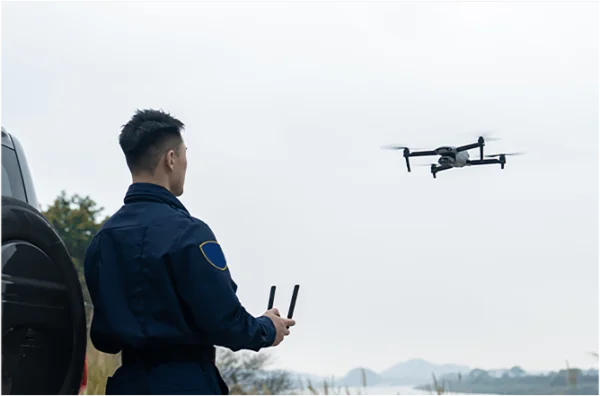
Drone pilot jobs in the security sector focus on using unmanned aerial vehicles (UAVs) for surveillance, monitoring, and protection in various environments, including residential areas, industrial zones, business properties, and office buildings. These drones serve as an effective tool to prevent theft, robbery, kidnapping, and damage, offering enhanced situational awareness and quick response capabilities.
Drones are employed for a variety of security applications, including:
The earnings for drone pilot jobs in the security sector can vary widely. Security drone pilots typically earn between $40,000 to $90,000 annually, depending on their level of experience, the complexity of the systems operated, and the specific security tasks they handle. Experienced operators working for large security firms or on specialized contracts may earn higher salaries.
Despite the advantages, there are challenges in this field:
To succeed in drone pilot roles within the security sector, the following skills are essential:
| Drone Model | Camera Type | Flight Time | Software | Best For |
|---|---|---|---|---|
| DJI Matrice 300 RTK | Custom Payload Options | 55 minutes | DJI Pilot | Industrial Security Monitoring |
| Autel EVO II RTK V3 | 8K Video | 40 minutes | Autel Explorer | Business Property Surveillance |
| DJI Mavic 3 | 20 MP Hasselblad | 46 minutes | DJI Fly App | Residential Area Monitoring |
| Autel EVO Lite+ | 50 MP, 4K HDR Video | 40 minutes | Autel Sky App | Event Security |
| DJI Air 3 | Dual 48 MP Cameras | 46 minutes | DJI Fly App | Asset Protection |
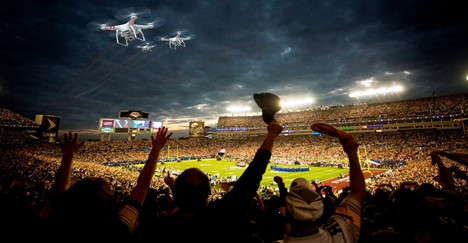
Drone pilot careers in the sports industry, particularly in cricket, football, and rugby, have gained traction as teams and organizations leverage aerial technology to enhance their operations. Drones offer unique perspectives for capturing live action, conducting pre- and post-game analyses, and enhancing fan engagement.
In these sports, drones are utilized for filming matches, creating promotional content, and providing valuable insights into player performance and strategy. They enable coaches and analysts to review plays from various angles, improving training methods and overall team performance.
Drones are applied in various ways within sports:
The earning potential for drone pilots in the sports industry can vary widely depending on their role and level of experience. Drone operators working for professional sports teams can earn anywhere from $50,000 to $100,000 annually. Freelance drone pilots capturing sports events may charge between $1,000 to $3,000 per event, depending on the project scope and required deliverables.
To excel in drone pilot roles in the sports industry, the following skills are essential:
| Drone Model | Camera Type | Flight Time | Software | Best For |
|---|---|---|---|---|
| DJI Mavic 3 | 20 MP Hasselblad | 46 minutes | DJI Fly App | Live Match Coverage |
| Autel EVO Lite+ | 50 MP, 4K HDR Video | 40 minutes | Autel Sky App | Training Analysis |
| DJI Air 2S | 20 MP, 5.4K Video | 31 minutes | DJI Fly App | Promotional Filming |
| Autel EVO II Pro V3 | 20 MP, 6K Video | 40 minutes | Autel Explorer App | Performance Analysis |
| DJI Mini 3 Pro | Dual 48 MP Cameras | 38 minutes | DJI Fly App | Fan Engagement |
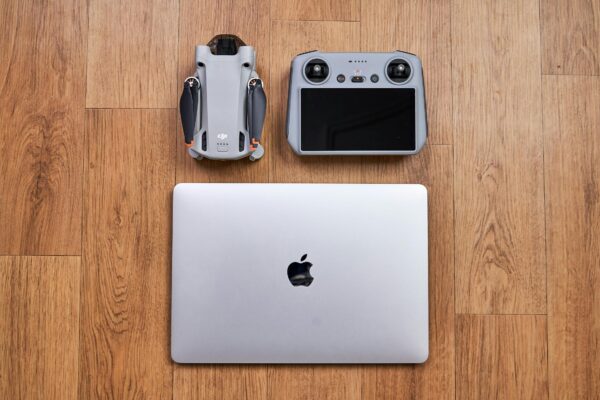
In today’s digital world, the drone pilot career has expanded beyond traditional fields into innovative areas like digital marketing and advertising. Drones are now essential tools for capturing stunning aerial footage that can enhance marketing campaigns. They are used in creating product videos, launching engaging Facebook and Google ads, and making television commercials that grab attention. These exciting roles offer job opportunities for drone pilots to collaborate with creative teams and bring ideas to life.
The earning potential in this field is promising. On average, professionals in digital marketing who use drones can earn between $60,000 to $90,000 per year, depending on their experience and the complexity of the projects they handle. This high earning potential makes it an attractive drone pilot career for those interested in combining technology with creativity.
| Drone Model | Camera Type | Flight Time | Software | Best For |
|---|---|---|---|---|
| DJI Mavic 3 | 20 MP Hasselblad | 46 minutes | DJI Fly App | Aerial Marketing Footage |
| Autel EVO Lite+ | 50 MP, 4K HDR Video | 40 minutes | Autel Sky App | Engaging Promotional Videos |
| DJI Phantom 4 Pro | 20 MP Camera | 30 minutes | DJI Go 4 App | High-Quality Product Videos |
| Autel EVO II Pro V3 | 20 MP, 6K Video | 40 minutes | Autel Explorer App | Commercials and Advertising |
| DJI Air 2S | 20 MP Camera | 31 minutes | DJI Fly App | Aerial Footage for Social Media |
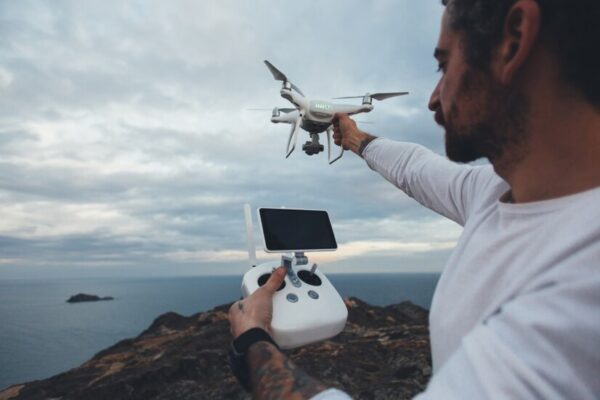
In the travel and hospitality industry, drone pilot careers have gained significant traction as businesses look to enhance their marketing efforts and improve operational efficiency. Drones are used for various applications, including capturing breathtaking aerial footage of hotels, resorts, and tourist attractions, which can be utilized in promotional materials and social media campaigns. Additionally, drones can assist in surveying locations, inspecting properties, and providing unique perspectives that traditional photography cannot achieve.
Drone pilots in the travel and hospitality sector can expect to earn between $50,000 to $80,000 annually, depending on experience, location, and the complexity of the projects undertaken. Successful pilots who establish themselves in this niche can see their earnings increase significantly, especially if they work with high-profile clients or on large-scale projects.
| Drone Model | Camera Type | Flight Time | Software | Best For |
|---|---|---|---|---|
| DJI Mavic 3 | 20 MP Hasselblad | 46 minutes | DJI Fly App | Capturing Scenic Views |
| Autel EVO Lite+ | 50 MP, 4K HDR Video | 40 minutes | Autel Sky App | Hotel and Resort Promotions |
| DJI Air 2S | 20 MP Camera | 31 minutes | DJI Fly App | Social Media Marketing |
| Autel EVO II Pro V3 | 20 MP, 6K Video | 40 minutes | Autel Explorer App | Aerial Footage for Travel Guides |
| DJI Mini 3 Pro | 48 MP Dual Camera | 38 minutes | DJI Fly App | Versatile Use in Various Locations |
Starting a drone pilot career can be exciting and rewarding. One effective way to gain experience and build your portfolio is by joining a drone pilot network. Instead of doing free shoots for friends or family just to get examples for your portfolio, you can actually earn money while honing your skills. This real-world experience is invaluable for anyone looking to pursue a drone pilot career.
Freelancing can also give you a chance to learn more about airspace regulations. Understanding how to navigate and research airspace is crucial for every drone pilot. Being part of a network allows you to work on different types of drone jobs, enhancing your knowledge and professionalism.
To thrive in a drone pilot career, you need several key skills:
Joining a network can help you connect with other professionals and find job opportunities. Here’s a list of notable networks where you can start:
By joining one of these networks, you can enhance your drone pilot career and find exciting job opportunities for drone pilots. Each platform offers unique benefits, so explore them to find the best fit for you. Whether you want to be a drone operator, work in UAV surveillance, or explore jobs for flying drones, these networks can help you on your journey.
Finding the perfect drone pilot career requires knowing where to look and how to stand out. Here’s a step-by-step guide to help you secure great job opportunities for drone pilots:
Approach Companies Directly: If you’re interested in a specific industry, don’t hesitate to directly contact companies. Fields like real estate, construction, and public safety are regularly seeking jobs for uav pilots for surveillance and data collection tasks.
To excel in your drone pilot career, a strong portfolio is key. Your portfolio acts as your visual resume, showcasing your drone career skills, experience, and professionalism. Here’s how you can create a portfolio that will stand out in your job as drone pilot:
Whether you’re applying for a full-time drone career or freelancing, acing the interview is crucial. To succeed, focus on these key areas:
To thrive in a drone pilot career, continuous learning is critical. Drone technology evolves rapidly, and to stay competitive, you must keep your skills updated. Here’s how to maintain your edge:
By following these strategies, you can not only land your dream job as drone pilot but also excel in a constantly evolving industry.
Looking for a drone pilot career can be challenging, but there are numerous companies where you can send your CV or explore job opportunities for drone pilots. These companies specialize in various industries, making them great potential employers for both beginner and seasoned drone pilots. Let’s explore these organizations, their specialties, and why they stand out as top recruiters for drone jobs.

Tailings Dam Monitoring: How Advanced Satellite Intelligence Is Transforming Tailings Dam Safety Tailings dams are among the most critical—and high-risk—structures
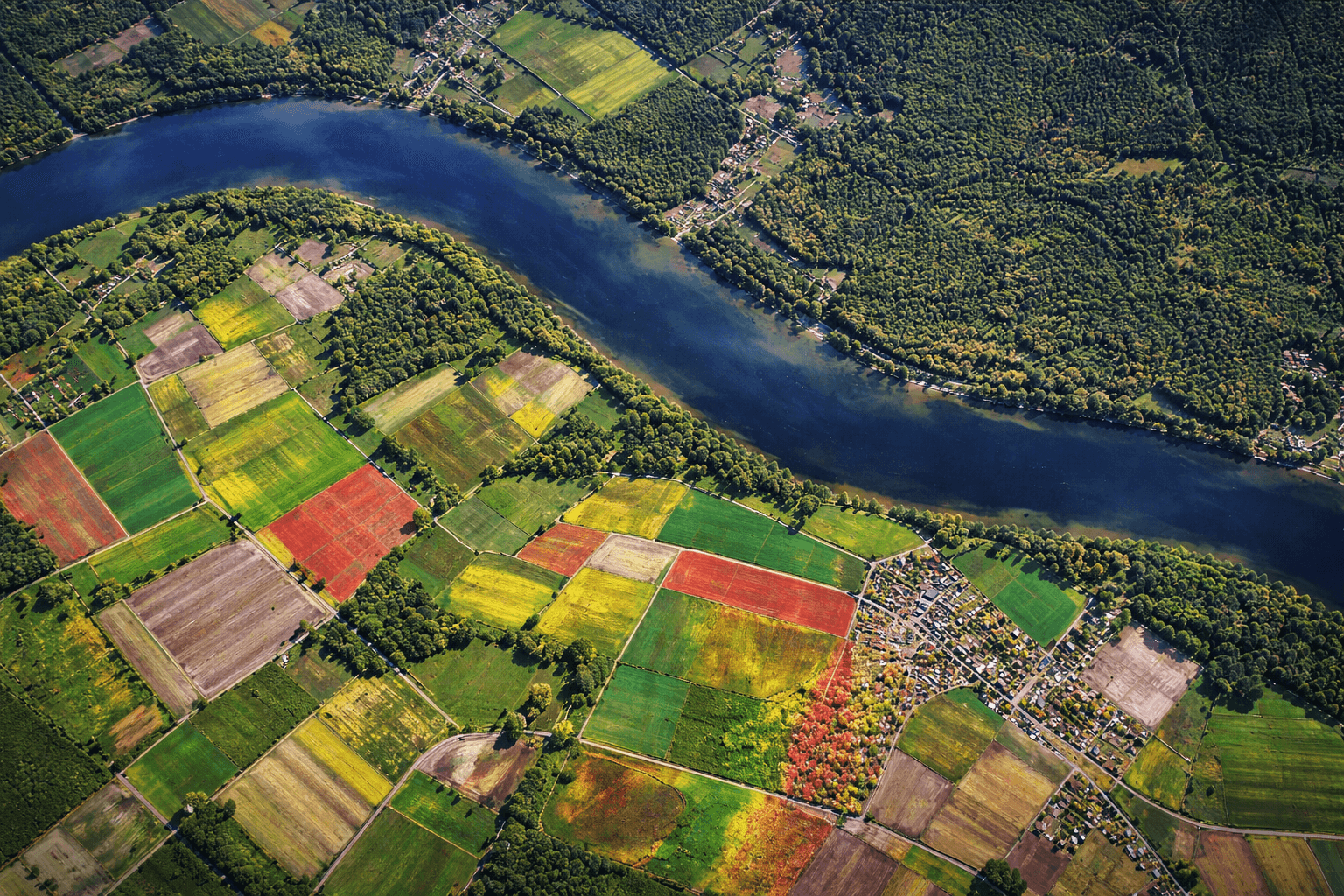
From Visible Light to Spectral Intelligence in Modern Satellite Remote Sensing Satellite imaging has moved beyond photography. For decades, Earth